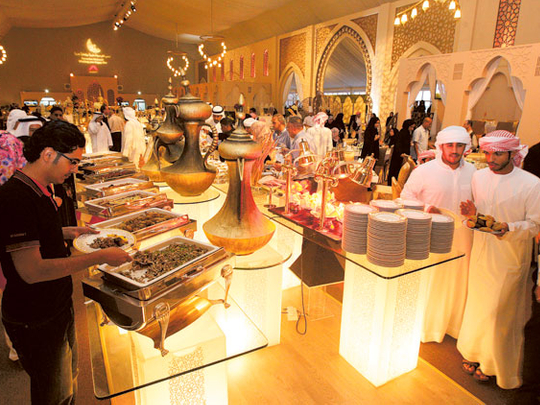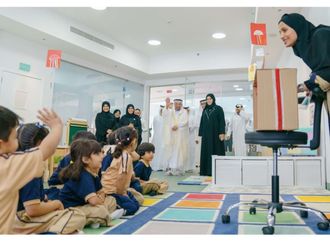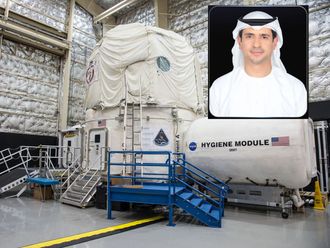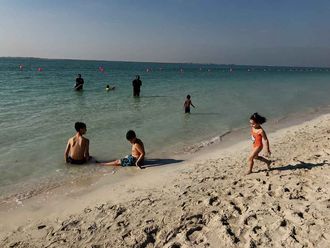
Dubai: Islamic scholars believe economic developments, changes in lifestyle and technological advancements have resulted in Muslims straying from the spiritual essence of Ramadan.
Ramadan is a special month for Muslims, a month of prayer, worship and observance.
During Ramadan, Muslims around the world are supposed to take part in an individual and spiritual journey, as well as in a shared religious festivity that is meant to strengthen one’s inner bond with god.
However, in the last decade, many have noticed that Ramadan traditions and rituals have been replaced with new emerging trends that lack spirituality.
In the past, people used to welcome the approach of the month with special traditions and songs that created a unique atmosphere of joy and magic. Nowadays, people celebrate the holy month by visiting shisha cafes, going for iftar buffets and the mall for Ramadan sales and watching TV soap operas.
Even the colourful lanterns that used to decorate streets and houses in Muslim communities are long gone.
This has caused many to question whether Ramadan has lost its spiritual essence.
To learn more about the causes that have led to the loss of some of the holy month’s traditions and values, Gulf News spoke to Islamic scholars who all agreed that economic development, changing lifestyles, the pressures of work and the spread of communication technology are key factors.
Dr Ahmad Al Qubaisi, a prominent Islamic scholar, attributed the lost spirit of Ramadan to many social, political, economic, material and psychological factors, as well as to growing consumerism.
He believes that the spirit of the fasting month is totally lost in Arab communities in general.
“Ramadan is a month during which options are open for Muslims to purify their souls, but it has become a month of breaking routine daily habits only. Instead of getting closer to God through prayer, people consume large quantities of food, spend many hours watching Ramadan programmes and sleep after dawn.
Al Qubaisi said that Ramadan is undoubtedly a call for spiritual renewal and reawakening.
“People must make the most of this month to repent and go back to God but, unfortunately, this chance is totally missed because people are overwhelmingly involved in material matters that have nothing to do with the spiritual nature of the month.”
He said people mainly focus on food and not on the true essence of Ramadan, while women waste so much time cooking instead of seizing this precious chance to worship God and enjoy the spirituality of the month.
This can also be attributed to the dominance of materialism and consumerism over spiritual things, he added.
Dr. Ahmad Ali Al Haddad, a university lecturer and international arbitrator in settling political disputes by peaceful means, said many things have changed due to rapid economic development, which has reflected positively and negatively on Emirati society with regard to their special rituals on social and religious occasions, including Ramadan.
“No doubt there is a decline in traditions and customs due to economic and urban development as well as involvement in material aspects and life pressures, which have changed traditional beliefs and, consequently, affected the spiritual atmosphere of Ramadan.
“In the past, many families, relatives and neighbours used to sit on the floor around one meal throughout the month, but now they get together occasionally.
“The spread of communication technology, such as smartphones and IPad, among many other technological means, and the use of social media have contributed to minimising physical gatherings. People now do not bother to visit each other and instead send SMS messages of congratulations, instead of getting together and celebrating special occasions such as Ramadan.”
Dr Al Haddad believes that the UAE society has been affected by the traditions and customs of expatriates living in the country, given that the UAE is home to more than 200 nationalities living here.
The exposure of Emiratis to the diversity of traditions that have been brought by expatriates to this country has contributed to influencing their customs, even eating and observance of special occasions. This has been clearly noticed during Ramadan as a major event observed by Emiratis, he said.
Al Haddad said that “no matter how people perceive the new transformation of Ramadan, Muslims have to strike a good balance between spirituality and material rituals”.
Nawal Al Ramahi is an intern at Gulf News












